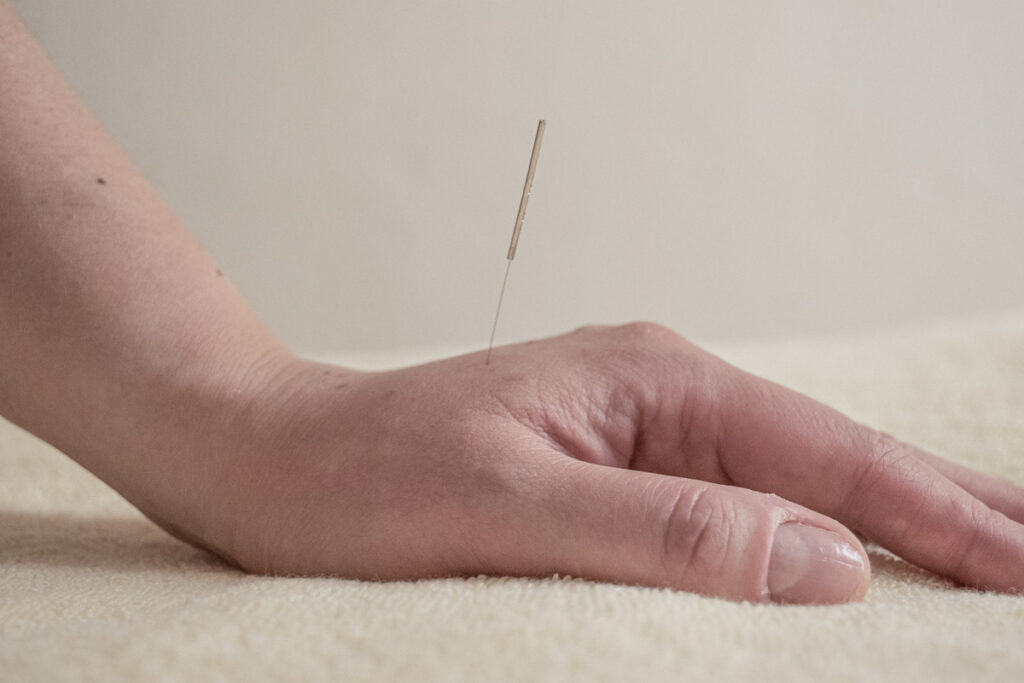
Acupuncture in Colchester: What is it and how does it work?
The style of acupuncture I offer at Colchester Acupuncture is classed as “Traditional acupuncture”. What that means is I will use the classic teachings of Traditional Chinese medicine. Using tongue and pulse diagnosis and a holistic approach, stepping back and viewing the bigger picture, a selection of points are chosen usually with a main emphasis. Having said that, sometimes I will simply choose a more protocol based approach (which is a more modern Western or medical style of acupuncture). It’s about offering flexibility of approach to suit the needs of the patient.
Does it really work?
The short answer is Yes! If you’re interested in a deep dive of research, this is a good resource.
What is Traditional acupuncture?
Traditional acupuncture is a branch of Chinese medicine that’s been around for thousands of years. It uses fine needles to stimulate certain points around the body. It’s worth mentioning that the needles are sterile and for single use only. Different needles (size/gauge) are used depending on the area of the body that they’re being used on. The needles are very fine and come in a plastic ‘guide tube, which keeps them clean.
Insertion of acupuncture needles is painless. Once in place, the needle is manipulated to produce a dull achy sensation known as ‘de qi’. There are hundreds of different acupuncture points on the body. Generally, a choice of points is chosen depending on the patient’s condition.
How does acupuncture work?
The modern scientific explanation of how acupuncture works is that needling acupuncture points stimulates the nervous system. This releases chemicals in the muscles, spinal chord and brain. These chemicals will either change the experience of pain. They can also trigger the release of other chemicals and hormones. These influence the body’s own internal regulating system.
In traditional language, inserting the acupuncture needles affects the flow of qi. This is the body’s vital energy that travels around the body via channels or meridians. For several reasons, qi can become disturbed, depleted or blocked. A common saying amongst acupuncturists is: “pain no flow – flow no pain”. In other words, when qi is flowing correctly, then the body is in balance.
The language of traditional acupuncture is a reflection of its cultural and historic origins. It sees symptoms of pain and illness as a sign that the body is out of balance. This happens due to poor or excess nutrition. It also is caused by emotional and physical stress, injury, infection, or a constitutional weakness. Physical, emotional and psychological symptoms are seen as interconnected.

If you’d like to read more about it’s history, The British Acupuncture Council has some good information.
What are the benefits of choosing acupuncture?
Acupuncture works! Acupuncture has very few side effects. Occasionally a small bruise or a spot of blood may occur. This happens rarely with a skilled acupuncturist with good needle techniques as the needles we use are very fine. Patients sometimes feel sleepy after treatment. This is due to a reduction in blood pressure as blood vessels relax and dilate.
I would never suggest to a patient to not take or stop drug therapy. But, there are occasions where it is possible to reduce certain medications with the guidance of your GP. Pain killers being a typical example. Another example is for patients who frequently experience chest infections, sinusitis, or UTIs that require antibiotics, acupuncture can serve in various ways. It can be a frontline treatment. It can also be a preventative measure or an adjunctive treatment. This is determined by individual circumstances and what’s most appropriate.
Hayfever is another good example. A short course of treatment (six sessions?) can often help most people get through the summer months without anti-histamines. Alternatively, they need only a limited amount.
I strongly believe in using acupuncture and Chinese herbs to treat menstrual irregularities. These methods are preferable to simply suppressing the cycle with hormone replacements or contraceptive pills. From puberty, through the fertile years and into menopause, acupuncture can offer a lot. The benefit here is that once the cycle is regulated, it should maintain.
Acupuncture treats the whole person not just the disease
Acupuncture is used to treat individual symptoms but also complex conditions. Patients often notice improvements in other areas. These areas include sleep, digestion, and emotional wellbeing during treatment of a certain set of symptoms. Traditional acupuncturists will aim to treat the person as a whole.
In some cases, patients only need a few sessions. For others, a longer course of treatment is recommended. This will be discussed at your consultation.